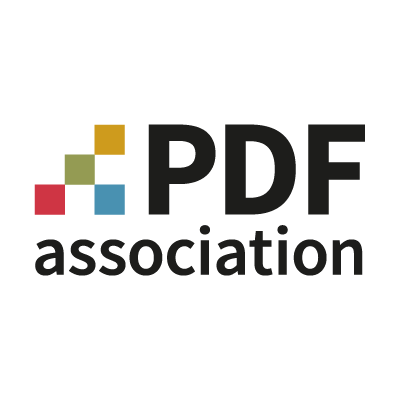PDF Days 2022 – Outlook Topic Block 2: Implementation
Since the various workshops and presentations have been divided into three different thematic blocks by the PDF Association, we have compiled a short overview for each topic. There will be many presentations on the three topics of practical experience, implementation and technology.
Here you will find all the presentations that are currently planned in the area of implementation. Here, the topics still revolve around practical experiences with a focus on technology and implementation. For example, the auto-tag process, special standards such as PDF/R, PDF/X or PDF/VT as well as concrete implementation questions such as implementing a PDF library in Ruby.
Block 2: Implementation
- Exciting presentation by Dietrich von Seggern and Duff Johnson: ISO TC 171 SC 2 and TC 130: a summary – What have been the most important developments regarding ISO since 2019?
- Contribution by Prof. Chris Prom: Email archiving in PDF format: PDF offers an approach that can be used for archiving email messages, folders and even accounts. This session provides an update on the activities of the EA-PDF Liaison Working Group.
- PDF and CQRS/ES: How to combine PDF with modern software architecture? Often when documents are edited, the history is lost. In this session, Francois Fernandes shows how to combine document history and business processes with CQRS and event sourcing. Concrete examples will be used to show how actions on documents can not only be tracked and stored, but also replayed to examine each step of the process.
- Learning to tag with Richard Cohn: What advances are there in using machine learning to tag PDF documents? We have been enhanced existing auto-tag technology with machine learning algorithms to improve the overall PDF reading experience on mobile and beyond: what can improving the auto-tag process for accessibility look like?
- Tagged and accessible PDF files with LaTeX: the current state of the project (Frank Mittelbach).
- The Ghent Workgroup specifications, which build on the ISO PDF/X standards, are followed worldwide and are integrated into many major graphics applications. The Ghent Workgroup last published a major specification in 2015, which at that time included a change from PDF/X-1a to PDF/X-4. Read all about the GWG 2022 specification from David van Driessche
- PDF in variable data printing – Variable data printing requirements and their relation to PDF features. PDF is becoming increasingly important in variable data printing, an area long dominated by AFP. However, the range of applications for PDF is much broader. The PDF Association’s Print Product Metadata LWG has published best practice guides for variable data printing based on PDF/VT. These guides support developers of products for the creation and use of PDF files and their users. This presentation by Dietrich von Seggern will introduce the best practice guides and provide further background information.
- Restoring deformed tables in scanned PDF files: https://www.pdfa.org/presentation/deformed-table-restoration-in-scanned-pdf/ Problems from everyday practice: In reality, many tables are published in a non-editable format, e.g. as a scanned PDF file or as a photo. Xiong Longfei delves into the topic of reconstructing tables.
- Implementing a PDF library in Ruby: What is involved in creating a fully functional, fast and memory-efficient PDF library? HexaPDF is a PDF library written in Ruby. It aims to provide the full range of PDF functionality except for rendering. You can read all about it in the article by Thomas Leitner.
- Important follow-up talk to the presentation about the File Observatory at PDF Days 2021 by Tim Allison: Progress and results of the analysis of 8 million PDFs collected by Common Crawl.
- Summary by Rene Rebe: How PDF/R is transforming image capture for mobile devices and the cloud. What developments were there in 2021/22 regarding PDF/R and what outlook can be given on the ongoing work to include highly compressed images in a PDF/R 1.1 revision.
In the next part you will learn everything about Topic Block 3 – Technology
Previous part: Topic block 1 – Practical experience

